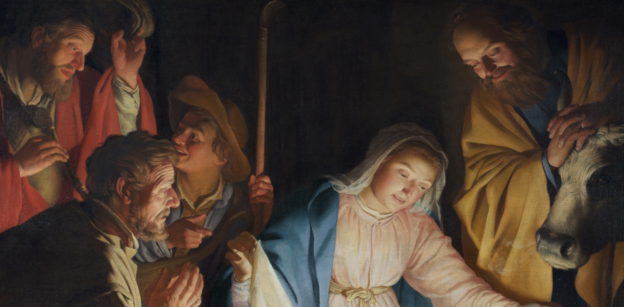Christmas and New Year brings many of us to a pause. We celebrate Jesus’ birth, swap presents, eat good food, spend time with friends and family, and many of us take a break of sorts from our daily grind. It can be a time to reflect, and also a time to look forward (whether with hope or uncertainty) to what will come in the next twelve months.
As we reflect, and look forward, let’s remember to also thank God for another year of salvation, and look forward to another year of God’s goodness too. Psalm 65 encourages us to do this through its praise of God’s salvation, praise of God’s power, and praise of God’s provision. All three of these themes are worthy of praise at Christmas-time, New Years, and all year!
Psalm 65 begins with praise for God’s salvation, experienced through being restored to God’s presence. Praise is appropriate and due to God from his people (v.1), especially in the Old Testament context of offering vows. We might say today that praise is due to God from his people, especially in a worship service!
It is God who hears the prayers of his followers, and to whom people from all over the world will come to experience God’s presence (v.2). Their hearts may be filled with sin, but God is the one who atones “for our transgressions” (v.3). God’s free grace, shown through his free choice, restores our relationship with God to enjoy his presence and find satisfaction in him (v.4).
But God does not just hear us and answer our prayers by forgiving our sins. God also performs powerful deeds (v.5) that are worthy of praise. These deeds are described as God’s response to the plight of his people, showing God is not some distant deity who does not care about what happens day to day. Nor is God’s power bound but displayed so that God is “ the hope of all the ends of the earth and of the farthest seas” (v.5).
This refers not just to God’s creating acts, but his continued acts of providence in upholding Creation and his miraculous interventions. God’s creation of the mountains shows his great power and might (v.6), and his continued power over the chaos of the roaring seas his continual providence over all things (v.7).
God’s power is also demonstrated in his stilling “the tumult of the peoples” (v.7) by intervening in history, so “that those who dwell at the ends of the earth are in awe at your signs” (v.8). God’s acts and power are not just intended for some, but for all the earth, as we see in the coming of Christ the Messiah of the nations.
Praise for God extends not just to his salvific presence and his providential power, but also to God’s provision. God is the one who waters the lands, causing vegetation to grow (vv.9-10). In Israel, where rains arriving at certain times of the year were needed for the crops to grow to avoid a famine, this was a demonstration of God’s provision. God was literally watering their vegetable gardens!
But God’s provision goes beyond heavenly sprinklers, because God is the one who causes those watered crops to grow and be fruitful. “You crown the year with your bounty; your wagon tracks overflow with abundance” (v.11). The pastures are plentiful, and the flocks of animals are liberally dotted among the meadows where they receive the food and drink they need (vv.12-13).
All of this provision causes the farmer, and indeed every one of God’s People, to rejoice and praise God for his continued goodness.
These three themes, presence (through salvation), power, and provision, are themes we can reflect on as we reach Christmas and a New Year.
Christmas reminds us of God’s great power, intervening in history through his salvation plan which reached its climax at the birth of Jesus Christ our Lord in a lowly manger in little Bethlehem. Pleased as man with men to dwell, Jesus our Emmanuel truly was God present with us to save us from our sins.
And that salvation was not just for a select group of individuals physically descended from Abraham, but for the ends of the earth! That is why we proclaim Christ among all the nations; not just because God commanded it, but so that his great power might be displayed as he draws people from all sorts of places, times, and backgrounds to himself.
As we feast in our own individual ways at Christmas and swap presents, we too are enjoying the bounty of God’s provision for us. That provision is not just material, but relational and spiritual too. God has blessed us with another year of salvation. God has provided us with another year of experiences, good or bad, for our ultimate good. God has blessed us through his Church, and his work of grace and sanctification in our lives.
Thank God for another year of salvation in our lives. Merry Christmas and Happy New Year to you all!

